News
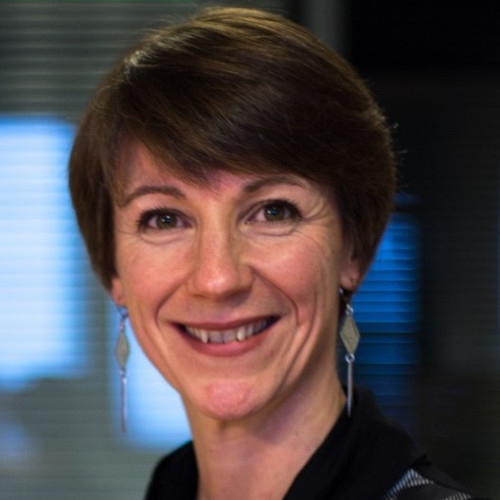
Portrait of Anne-Cécile BOUSCARY (ISEN 1990)
- HELLO, can you briefly introduce yourself?
Anne-Cécile Bouscary, I'm 56, the mother of three grown-up daughters and originally from Toulouse. I studied at ISEN Lille and have been back in the Toulouse area since 2015.
- We're going to take a trip down memory lane. Can you tell us about your university career: training, specialization, associative life, projects, internships?
I went to ISEN as a post-baccalaureate student, I was a member of the theater association and I hosted the cultural section of Radio Cité Vauban. We were located in the ISEN cellar, which was our first free radio station (in 1986/87). During my engineering studies, I was responsible for running the swimming group's training sessions on Thursday afternoons. In M4, I joined the junior company. In my final year, I was lucky enough to take part in the Erasmus program when it was first being set up. I went to London to study at King's College, specializing in signal theory. As a result, I obtained a double degree in "Master Science and Digital Telecom" as well as the ISEN diploma. My internship was at British Telecom in Ipswich, where I worked in their paper library. My project was to compile existing frequency documentation, with a particular focus on the best frequencies to use for Wi-Fi. I then wrote an internship report on the subject.
- What's your best memory of your studies at JUNIA (HEI, ISA and ISEN Lille)?
My best memory at ISEN, I think, was my year in England. My stay in London was incredible, I was in a residence in the heart of the city, it was magical. Otherwise, I'd say it was my graduation trip to Mexico. We went with half the class, and it was an incredible experience. Then there was my 18th birthday, which I celebrated with a few friends from my graduating class (about twenty). It was at my grandparents' house, and we'd managed to invite the prep school math teacher to my place.
- During your studies, did you already know what you wanted to do and what position you were aiming for?
I was looking for an international job in any field, because what I really wanted to do was travel. That's why I went to England, because I wanted to improve my English. On my return from Erasmus, I landed a job as an information developer in a wool trading company. I took the job because the IT department, which was based in Tourcoing at the time, was in charge of activities in Italy, England and Spain. This allowed me to travel regularly in Europe. I hadn't necessarily learned how to code during my studies, but I got into it during my first job.
- What has been your career path since graduating?
I spent 7 years with this wool trading company, working in IT development. Back then, IT departments were quite small, so we were multi-skilled: we did the specifications, development, testing, deployment and we explained to users how to use the tools we'd created. After those 7 years, when my third daughter was born, I took a 3-year parental leave. During this time, I turned my attention to a field that interested me enormously: theater. So I got in touch with a director and we set up an artistic residency project. As a result, I created a position as administrator in a theater company, which was financed. For 3 years, I worked for this theater company in the Porte du Hainaut region, around Saint-Amand-les-Eaux.
My first job was with IRSEM, the Roubaix-based supplementary pension fund for domestic workers. I was in charge of a team of around forty people in charge of application maintenance. It was there that I began to exercise management functions. Although my interest in technical IT has always remained strong, I concentrated on management. I spent two years in this role, then joined a company specializing in Microsoft technologies. There, I worked in project management and sales, selling our Microsoft experts to customers. In 2011, I joined Soprasteria in Lille as project manager for customers such as Thales, Auchan and BNP.
In 2013, I was asked to take charge of human resources management for what's known as the Nord-Est division, covering a scope of around 1,000 people. In this role at Sopra Steria, this involved responsibility for recruitment, training, as well as manager training. However, I wasn't in charge of the legal side. After two years in human resources in Lille, I had the opportunity to transfer to Toulouse at the time of the merger between Sopra and Steria. At the time, there was a major job to be done in Toulouse: bring together around 800 people on one side, 600 on the other, and merge the whole operation. For 3 years, I was in charge of human resources in this context. After that, I moved in a new direction, towards consulting. I've been a consultant for almost 7 years now. I progressed through the consulting ranks, from manager to senior manager, and today I'm a director. I'm part of Sopra Steria Next, which is Sopra Steria's consulting practice.
- What are the main tasks in your job?
I'm involved in scoping missions for major programs, mainly in the IT field. These projects have become considerable, and are now referred to as programs, often involving digital transformations. My role is to take into account all aspects linked to people, processes and tools. It involves understanding how these three elements interact, how they modify existing processes, how to train employees and review their skills, and how to define tool functionalities.
I'm working for AIRBUS, where I'm currently conducting a scoping phase that should last around 6 months. After that, I'll be setting up development and project management teams to carry out deployment, development, installation and so on. My role is more upstream in the process.
- How has your network (school, alumni association, family, professional) played a role in the development of your career?
I went to ISEN because my father went to ISEN (laughs).
I moved to Lille because I was accepted at ISEN Lille and also because my grandparents lived there. I didn't make much use of the alumni network. However, I still enjoy meeting other graduates by chance in the course of my professional assignments. It's more a source of personal satisfaction to bump into them than to play a role in my career development.
- As a female engineer working in a professional environment that is often considered and stereotyped as masculine, would you have any advice for current female students considering a similar career path?
What I like to say to girls is "dare!" and do what you want to do. My career path has always been guided by my aspirations. At the start of my career, I wanted to go abroad, and then I wanted to discover the aeronautical field, so I seized the opportunity. As far as stereotypes are concerned, I've never really had a problem working with men. I've always been respected. The only difficulty I've encountered professionally is the glass ceiling. But I've encountered it in all my professions, whether as an engineer or in human resources.
I'd say there's no particular difficulty. If you're passionate about your subjects, there's no problem. You don't have to make a mountain out of a molehill. Today, there's room for a different approach to engineering than for people in highly technical roles. Personally, I'm more oriented towards change and management, thinking about the purpose for the user and the added value we bring. As women, we bring a different perspective to the engineering community. We all have our place, it's just a question of being daring and willing. In this business, there are things that correspond to us.
- Another message to pass on?
I think it's my general engineering training that has enabled me to have such a varied career path. And I'm really grateful to have had this experience, because I consider it extremely enriching. I've become interested in a wide range of subjects, and this training enables us to continue learning throughout our professional lives. Thanks to our capacity for analysis and our ability to constantly acquire new skills, I find it exciting to see how much our initial training offers us.









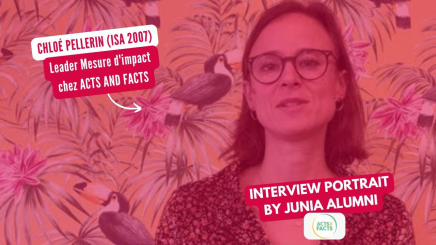
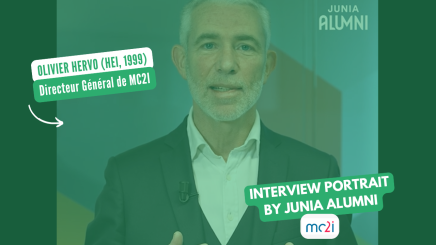
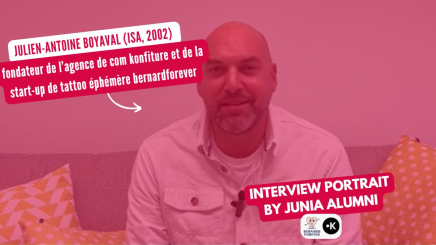



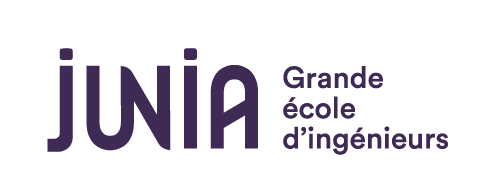
No comment
Log in to post comment. Log in.